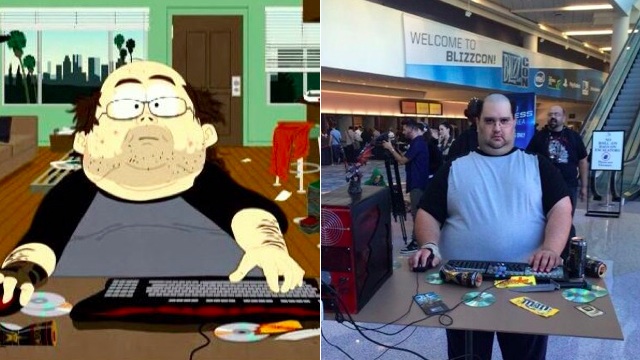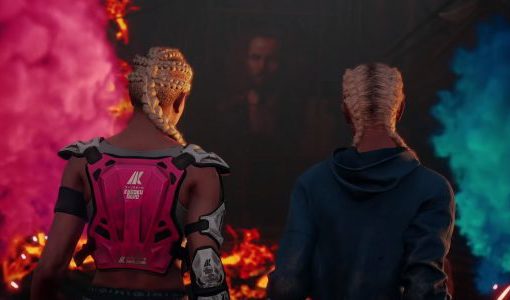This week, I’ve been playing Life is Strange, rereading I am Charlotte Simmons, and thinking about unlikable characters. Both Life is Strange and I am Charlotte Simmons are filled with characters that I just do not like, but nevertheless I’m fully invested in both narratives this week. Unlikable characters often get a bad rap in my opinion because they can make the narrative much more engaging, if done well, or it can be like watching a train wreck. Although I often see negative reactions to unlikable characters in online reviews, etc, I know I’m not alone in loving to hate a fictional character.
Last week, I went down some Internet rabbit hole that led me to the Amazon page for I am Charlotte Simmons. I don’t remember precisely why exactly, but I found myself reading the reviews for the novel. A couple of one star reviews stood out. One reviewer wrote, “I could not get past the language and it was depressing to think college students talked and behave in this manner.” And, a other wrote, “if you’re into supposedly strong female heroines that are completely weak, then you may enjoy this book.” I am Charlotte Simmons follows a handful of stereotypical college students through their Ivy league experience: an inexperienced freshman, a nerd, a rich kid, and a jock. I remembered liking the book, but I also remembered not liking the characters very much. Amazon helpfully told me that I haven’t read the book since 2010 (which was 5 years ago already!), so I decided to reread it. I still mostly dislike the characters most of the time, but, based on the comments above I was curious to see if the characters did resemble a typical college student and if Charlotte Simmons was a “weak” strong female lead. The answers for me are yes and no. Charlotte seems strong at times; she’s often oblivious or indifferent to social pressures. But, all too often, she gives into peer pressure. Sometimes, I get frustrated with her and want to tell her, “girl, if you don’t want to drink, don’t drink!” But, my reaction is coming from a place of experience, and I remember feeling all of the peer pressure when I was her age, so it’s hard for me to classify her as a “weak” character. She can be extremely unlikable: she’s often arrogant and judgmental, but that often seems to be a reaction to the way she is judged and treated by others. All of the characters are flawed, but sometimes they can be endearing. The book is riddled with stereotypes, so I can’t say that typical college students act this way, but current headlines show sometimes they do. Tackling the big themes of the novel is somewhat outside the scope of my post here, and I’m no literary critic anyway, but I have been thinking a lot about these characters this week and how and why my love/hate relationship with all of them keeps me so engaged in a narrative that I’ve already read. I keep reading because because flawed characters are a whole lot more interesting than characters that just do the right thing all the time.
I had a similar reaction to episode 2 of Life is Strange. After Episode 1, I knew I wanted to continue just to see what happens, but I didn’t feel a lot of urgency to do so. I was a little bored in Episode 1, and I didn’t care much at all for any of the characters. And, when I say I didn’t care much for them, I mean I actually didn’t care. I didn’t like them, didn’t hate them, I just didn’t care, so I had low expectations when I went to play Episode 2. I was pleasantly surprised by Episode 2, to say the least. (I’ll try to keep major spoilers out of this post, but if you haven’t played, it’s probably best that you stop now and go play it!) The immediate problem in Episode 2, the viral video, engaged me pretty quickly, but I still didn’t feel an immediate connection to any character. That all changed pretty quickly as the narrative began to build, and soon I was fully immersed in the story. (Except for the tedious detour into “fetch the bottles” hell). But, the more immersed in the story I became the more I began to actively dislike pretty much all of the characters. Max, it seems, can’t win (at least when she’s got me making her decisions for her). Chloe seems constantly mad at Max, to the point that I personally would question whether being friends with her would be doing me more harm than good. The adults in Max’s life seem to think very little of her. I think David is an obvious problem, but my decisions to give honest answers also led to a lot of problems with Mr. Jefferson, who came to think of Max as a trouble maker. I found this very frustrating because I was having Max tell the truth. When Mr. Jefferson started to turn against her, I decided I no longer trusted anyone in this game, a decision that will likely backfire on me at some point as all decisions in this game seem to do.
My dislike of these characters is what makes the game so fun, though. Much better than the flat, dull characters I saw in Episode 1. Both I am Charlotte Simmons and Life is Strange give me characters I love one minute and hate the next, but that mirrors real life for me. I don’t always like my friends, and they, I’m sure, don’t always like me. Life is full of conflict and full of bad days and bad moods and backstories that lead people to behave in off-putting or harmful ways. Reading a novel with these characters is enjoyable for me and gives me a lot to think about, but playing Life is Strange and having to make all the decisions is stressful! The choices we make in Life is Strange all seem to have some sort of backlash or consequences attached, much like real life. So far the decisions in Life is Strange seem to have actual consequences, and decisions in Episode 2 seems to have lead to divergent story lines, unlike other decision-based games. I know many of us are anxious to see how that plays out/how well it’s handled.




